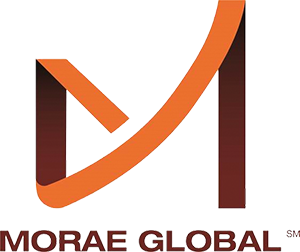At most organisations, the contract negotiation process is highly manual, inconsistent and reliant on the institutional knowledge of the attorneys involved. Companies lack well-documented clause-level risk standards to advise on contract issues, and have no clear and consistent process for entering into agreements. The implications are unnecessary risk, inefficiency, cost and delays.
Taking a data and process-driven approach to enhancing the contract negotiation process can unlock hidden value that leads to a simplified contracting process, less risk, improved insights, higher productivity and a better bottom line.
So what does it take to enhance the contract negotiation process? It can be boiled down to four key elements:
- Harmonising contract term language.
- Equalising templates with market norms.
- Rationalising template variations.
- Optimising process and automation of manual tasks.
Harmonizing contract term language
Analysing existing contracts and contract templates is essential for establishing standard positions. The empirical data created during the review process can be used to inform standard terms and conditions as well as fall-back options, and create suggested clause repositories. These clause repositories harmonise language and positions across different contract populations, making positions easier and more familiar to negotiators prior to execution, and easier to monitor following execution. This approach allows the legal department to fully assess existing legal function before creating new templates, playbooks and procedures as well as training materials.
Equalising templates with market norms
Automating the drafting and negotiation process with templates saves time and resources, provides uniformity and consistency, and allows the collection of relevant data that can further enhance the process. Templates can be equalised by identifying necessary components and comparing with market norms to reduce legalese, making provisions more balanced (when appropriate) and organising terms for streamlined creation, review and negotiation. Starting with terms that are closer to industry standard reduces time spent negotiating and speeds time to close.
Rationalising template variations
After acquiring empirical data and identifying necessary components for the templates, new master templates can be created that include supplemental addenda to accommodate unique or specialised contracting scenarios. This ensures that templates are fit for purpose while simultaneously reducing the number of versions. Since templates are more accessible to users and they can be tightly bound with company negotiation playbooks, it also mitigates the risk associated with someone mistakenly using the wrong form or language.
Optimising process and automation of manual tasks
Optimisation starts with documenting existing workflows, including all known variations, but also incorporates interviews with both the teams requesting contracts as well as those creating them. By analysing how the company currently works as well as understanding currently perceived challenges, many legal departments start to uncover areas for improvement. This knowledge then drives the creation of future state processes that consider not only how the work should be done and who should be involved but also the information that must be available to drive insights into best practices. These data insights allow companies to unlock the hidden value in their contracts, including through reporting, tracking and risk mitigation.
Knowledge management
Another key component for contract success is using playbooks for knowledge management. These playbooks collect individual knowledge and transform it into institutional knowledge, distribute the work to the correct teams or resources at the right time to optimise efficiency and reduce redundancy, create an auditable trail for decision making, and highlight opportunities for improved consistency and standardisation. Negotiation playbooks are best created by understanding the policies and preferences of in-house counsel, reviewing any existing written policies and guidance, and developing comprehensive instruction manuals that cover:
- Initiating and negotiating a new contract request.
- Accessing and utilising templates.
- Escalating specific questions/non-standard terms and routing for approval.
- Signing and storing agreements.
This mitigates risk by ensuring every attorney operates in a consistent fashion. It also streamlines the training and onboarding of both internal and external support resources.
With the expanding number of legal technology options, law firms and legal departments can also leverage artificial intelligence, with services that focus on process optimisation and the creation of reliable, referenceable data that can be used to create improved templates and negotiation playbooks.
Many legal departments are challenged with limited resources and may lack well-documented clause-level risk standards to look to on contract issues, or even a standardised process for entering agreements needed to operate the business effectively. Even experienced contract negotiation teams may have difficulty capturing and analysing the data needed to create effective negotiation playbooks or refine contract templates. Utilising a consulting and legal process service provider can offer companies the means to implement a company-wide process.
Harmonising contract term language, equalising templates with market norms, rationalising template variations, and optimising process and automation of manual tasks helps companies remove the unintended variability from contracting to mitigate risk, improve productivity, reduce legal spend and shorten contract cycle times. Upgrading the traditional contract negotiation process to a data analytics and process-driven approach will not only enhance existing processes but also help transform them.

Christopher Cahn, managing director, Morae Global











